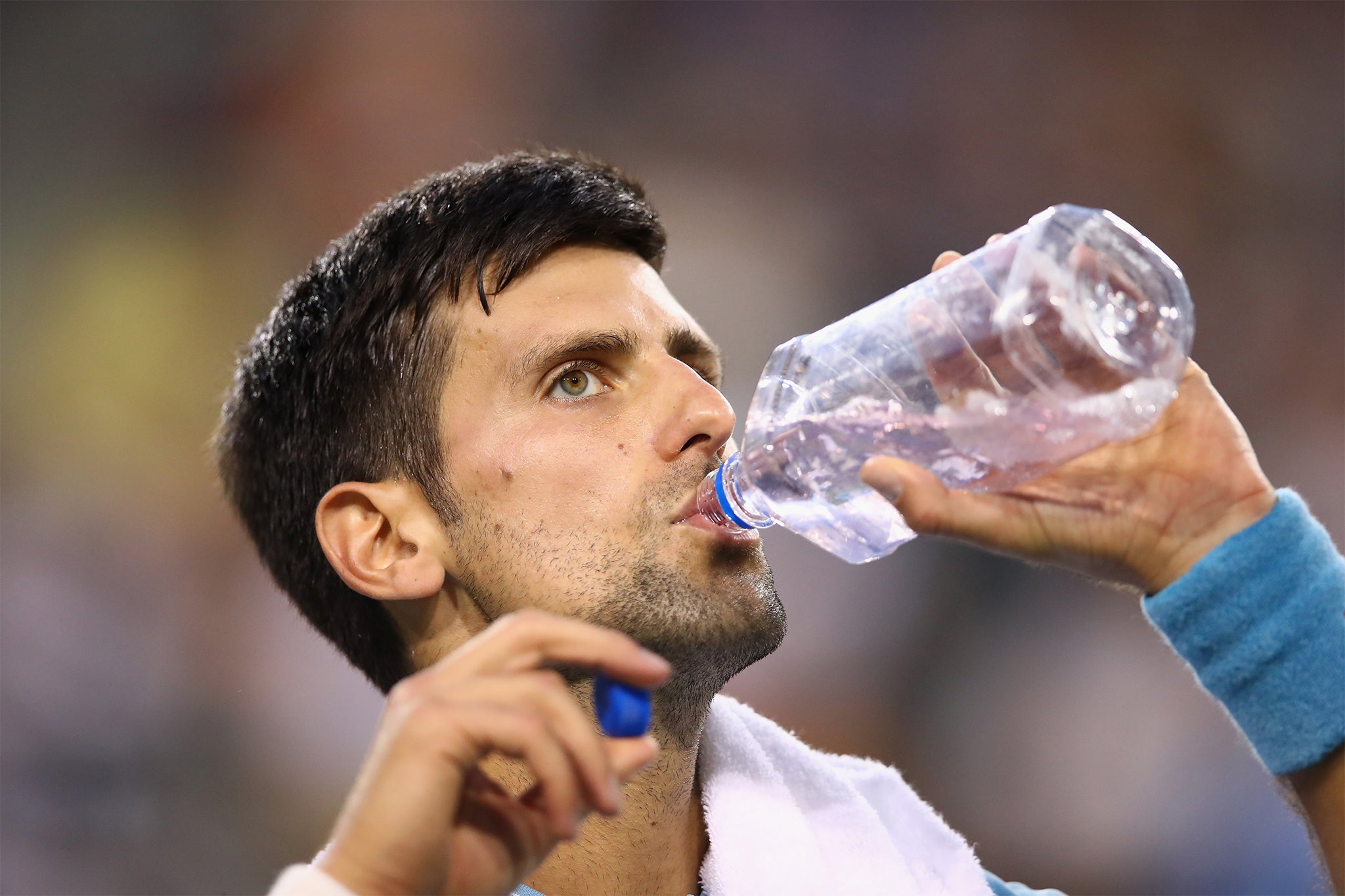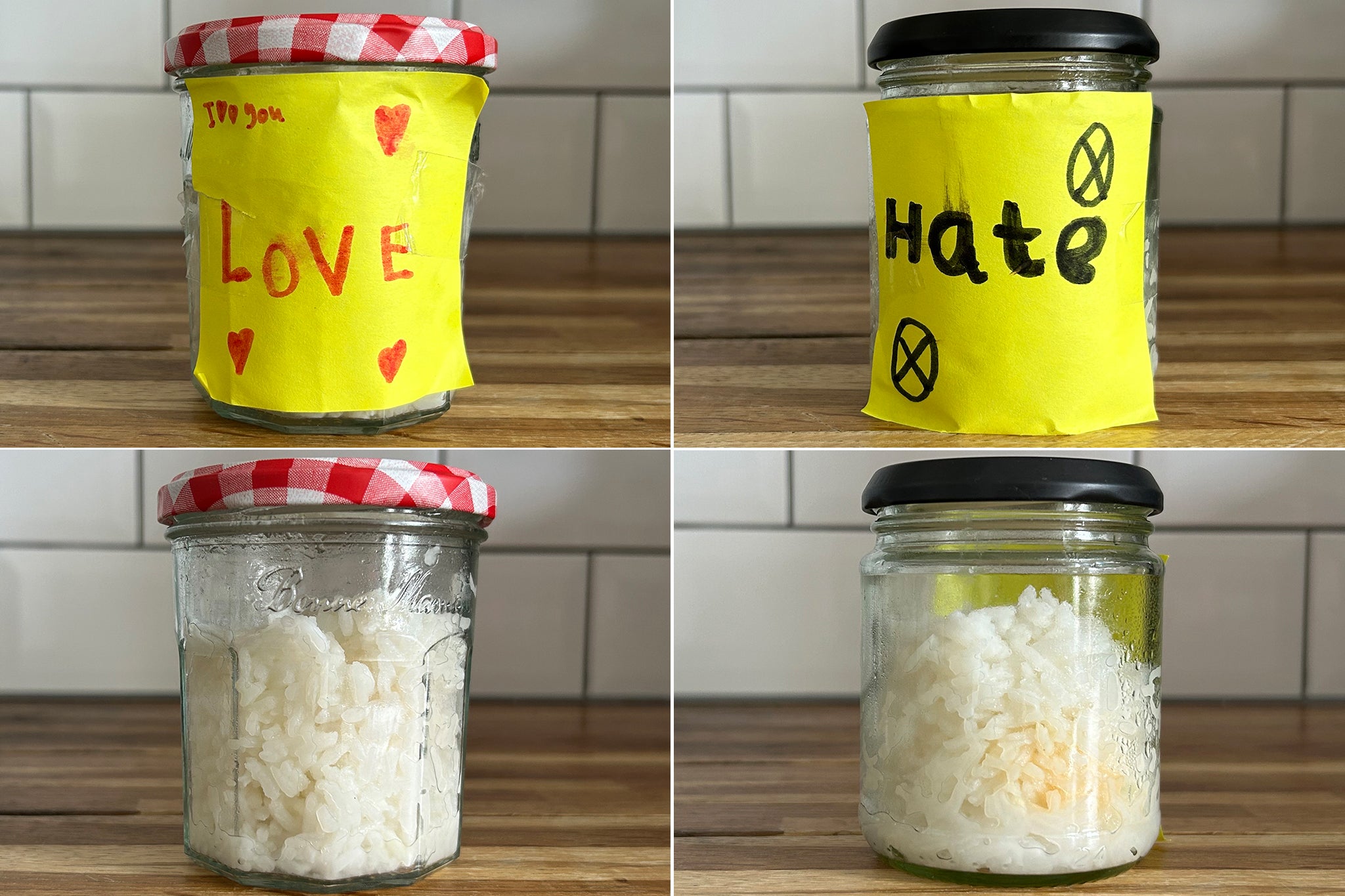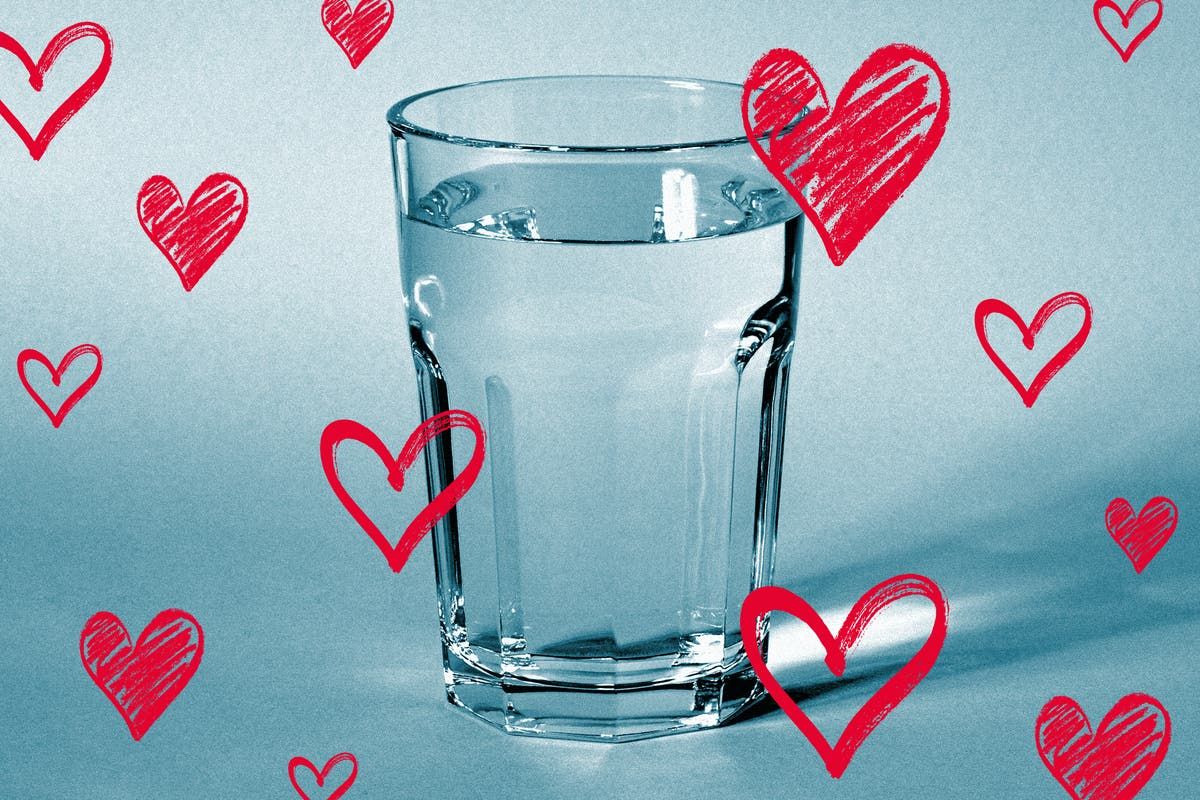Truly support
independent journalism
Our mission is to provide unbiased, fact-based reporting that holds the powerful to account and exposes the truth.
Whether it's $5 or $50, every contribution counts.
Support us in offering journalism without agenda.
Yo I was a little hesitant to sweet talk a glass of water to help boost its frequency and energy. It all seemed too far-fetched. But while the nation was enthralled by Novak Djokovic’s on-court antics over the past few weeks at Wimbledon, I was distracted by his bizarre beliefs, some of which include speaking positively to his food and “purifying” water with his thoughts. And that’s why I’m about to drink a glass of water that I’ve loaded with positive intentions. For now, I’ve set aside the homemade filtration system and purification pills in favor of this new regimen. That regimen is the power of my mind.
Could this be a turning point, as Djokovic suggests? I’ve watched enough TikTok videos to know what to do. I hold the glass of tap water in both hands. I close my eyes. I whisper sweet nothings into it. “I love you.” “Thank you.” “You are perfect.” “Every molecular cell is in perfect health.” Then I gulp it down.
I’ve even added a little mantra to manifest my dreams: “I am wealth, I am health, I am love.” I say it as my kids get ready for school and look at me in disbelief. “I am abundant in all things. Thank you!” Then I drink the water and start my day. (A word of warning: I switched from Thames to bottled water midway through the test; I could still taste the chemicals even after sending it very, very good vibes.)
So does water really have “feelings”? Can human consciousness affect its molecular structure? Well, probably not, but the late Japanese pseudoscientist Masaru Emoto, who died in 2014, swore by it. He conducted a series of experiments in the 1990s observing the physical effect of words, sentences, music, and the environment on the crystalline structure of water. After exposing it to positive or negative experiences, he would freeze it. Under the microscope, and depending on whether it was loved, ignored, or someone angrily yelling at it, the crystal could look like a beautiful snowflake or a horrifying nuclear explosion.
However, Emoto's experiments lacked credibility and were quickly ridiculed by the scientific world. One critic questioned “the sanity of the reading public” when Emoto's experiments Hidden messages in water became a New York Times Bestseller in 2004. This hasn't stopped Djokovic. He drinks Bosnian “pyramid water”, which supposedly possesses unique properties due to its exposure to the “mystical” energy of the ancient pyramids. He also believes in telekinesis to purify food, saying in 2020: “I know some people [who] – Through this energetic transformation, the power of prayer, the power of gratitude, we manage to transform the most toxic food or the most contaminated water into the most healing water. Water reacts, and scientists have shown that water molecules react to our emotions, to what is said.”
Unsurprisingly, Gwyneth Paltrow has also championed the healing properties of water, writing in a Goop email in 2014 that she was “fascinated by the growing science behind consciousness energy and its effects on matter.” She also confessed to owning a copy of Emoto’s book. And former England and Liverpool striker Rickie Lambert shocked his followers last year by claiming that water could be purified by speaking positively to it.

I had to find out if any of this was true. Unexpectedly, when I started talking to my water last week, I noticed the benefits almost immediately. After verbalizing positive affirmations, I became more comfortable with the idea of self-love and self-talk. I had also developed a stye on my lower left eyelid, something I’d never had before, and my GP told me I might need to go to the hospital if it got worse over the weekend. I went home, poured myself a glass of cold water and spoke directly to her. “You’re wonderful, lovely water,” I said. “Every drop of yours is healing and making everything better in my eye. Thank you. I love you.” My eye improved later that day. Obviously, it could have nothing to do with the beloved water – I used a warm compress on it that was medically recommended. But who knows?
I also decided to take my water experiment to the next level: I was going to try out Emoto’s famous rice experiment, which claimed that if you put rice into three separate jars and treated those jars differently, the rice would be affected in different ways. I got my two daughters, Lola, age eight, and Liberty, age six, involved. We cooked some rice and added it to three glass jars with some water. We labeled one jar “love,” another “hate,” and left the third jar blank. According to Emoto, the rice in the hated and ignored jar would start to rot.
My children and I regularly spoke to the jars of rice according to their labels. “You are my best friend, you make me happy, you make me smile,” Liberty said to the “love” jar. “I hate you, you are stupid, you are so ugly,” Lola said to the “hate” jar. We paid no attention to the third jar. After just a week of keeping track of the jars, we were shocked by what we discovered. The rice in our “love” jar looked pearly white, with individual grains neatly stacked together, “like you want to eat it,” Lola said. The “hate” rice and the ignored rice were lumpy and puffy. Oddly, the “hate” rice also had a yellow spot in the middle. I couldn’t explain how that had happened.
I wonder if ignored rice should be closer to loved rice, rather than hidden behind Rice Crispies, as a kind of measuring stick for our indifference and for bolder results. But alas,

Anyway, back to water. Although the concept of “water memory” has long been a central theme in homeopathy, it is not something that most scientists take seriously. “As a cell biologist, I can’t think of any reason why talking to a glass of water would affect the water in any way,” says Emeritus Professor William Reville of the School of Biochemistry and Cell Biology at University College Cork. “There is no more effect on a wall than talking to a wall.”
“H2O is the same water, whether in our bodies or in a glass,” he adds. “The chemical or physical properties of water are well known and the many ways in which water facilitates the biochemical processes of life are understood. There is nothing mystical or mysterious about this, although the details are beautifully intricate and pleasing to contemplate.”
The problem with ideas like Emoto’s, he says, is that “it is not possible, at least so far, to propose a credible mechanism by which emotions and thoughts can physically affect water molecules.” But, he adds, there is abundant evidence that thinking positively and with hope is good for our own mental well-being. “There is nothing mysterious about this and psychology understands and attests to it well. But it is something completely different from ‘energizing’ a glass of water with your mind.”
Dr. Tara Swart, neuroscientist and 2019 bestselling author The Source: Open Your Mind, Change Your Lifetakes a slightly different approach. In fact, he is optimistic about the potential benefits of talking to water.
“While there is no scientific evidence to prove that you can purify water with your mind, water molecules do rearrange themselves in response to certain pieces of music,” she says, adding that “speaking positively to plants or water has some anecdotal evidence.”
It’s all about manifestation, she continues. “By thinking positively, talking to yourself, or speaking positively to others (possibly including water and plants), you are shifting your brain state from one of stress or loss to one of confidence and abundance,” she says. “Since we are wired to avoid loss more than gain reward, it’s important to override this negative bias with the power of our mind to thrive in the modern world.”
With all that in mind, I've decided to keep telling my water how wonderful it is, and also how abundant my life is. If it's true that happiness, wealth, love, and health can all be controlled by our brains, then what do I have to lose? The water may not really absorb my positivity, or it may not be able to forget all the other “memories” I had before it ended up in my glass, but at least I know I'm drinking for a positive future.












